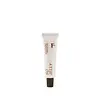What's inside
What's inside
 Key Ingredients
Key Ingredients

 Benefits
Benefits

 Concerns
Concerns

 Ingredients Side-by-side
Ingredients Side-by-side

Water
Skin ConditioningGlycerin
HumectantCoco-Caprylate/Caprate
EmollientPolyisoprene
Ceteareth-6 Olivate
EmulsifyingButylene Glycol
HumectantCetearyl Alcohol
EmollientOpuntia Ficus-Indica Seed Oil
EmollientCereus Grandiflorus Flower Extract
Skin ConditioningAscophyllum Nodosum Extract
Skin ConditioningOlea Europaea Fruit Oil
MaskingOlea Europaea Oil Unsaponifiables
Skin ConditioningTerminalia Ferdinandiana Fruit Extract
AntioxidantHydrogenated Olive Oil
Skin ConditioningAsparagopsis Armata Extract
Skin ProtectingPolysorbate 60
EmulsifyingEthylhexylglycerin
Skin ConditioningPotassium Hydroxide
BufferingSorbitol
HumectantPhenoxyethanol
PreservativeCarbomer
Emulsion StabilisingTetrasodium EDTA
Potassium Sorbate
PreservativeWater, Glycerin, Coco-Caprylate/Caprate, Polyisoprene, Ceteareth-6 Olivate, Butylene Glycol, Cetearyl Alcohol, Opuntia Ficus-Indica Seed Oil, Cereus Grandiflorus Flower Extract, Ascophyllum Nodosum Extract, Olea Europaea Fruit Oil, Olea Europaea Oil Unsaponifiables, Terminalia Ferdinandiana Fruit Extract, Hydrogenated Olive Oil, Asparagopsis Armata Extract, Polysorbate 60, Ethylhexylglycerin, Potassium Hydroxide, Sorbitol, Phenoxyethanol, Carbomer, Tetrasodium EDTA, Potassium Sorbate
Aloe Barbadensis Leaf Juice
Skin ConditioningCaprylic/Capric Triglyceride
MaskingGlycerin
HumectantSorbitol
HumectantDimethicone
EmollientGlyceryl Stearate
EmollientCetearyl Alcohol
EmollientHexapeptide-47
Skin ConditioningSodium Polyacrylate
AbsorbentAlgae Extract
EmollientAlaria Esculenta Extract
Skin ProtectingAscophyllum Nodosum Extract
Skin ConditioningAsparagopsis Armata Extract
Skin ProtectingCentella Asiatica Extract
CleansingPanax Ginseng Root Extract
EmollientSclerotium Gum
Emulsion StabilisingPhenoxyethanol
PreservativeEthylhexylglycerin
Skin ConditioningSodium Hydroxide
BufferingAloe Barbadensis Leaf Juice, Caprylic/Capric Triglyceride, Glycerin, Sorbitol, Dimethicone, Glyceryl Stearate, Cetearyl Alcohol, Hexapeptide-47, Sodium Polyacrylate, Algae Extract, Alaria Esculenta Extract, Ascophyllum Nodosum Extract, Asparagopsis Armata Extract, Centella Asiatica Extract, Panax Ginseng Root Extract, Sclerotium Gum, Phenoxyethanol, Ethylhexylglycerin, Sodium Hydroxide
Ingredients Explained
These ingredients are found in both products.
Ingredients higher up in an ingredient list are typically present in a larger amount.
Ascophyllum Nodosum Extract is from brown seaweed that grows in the northern Atlantic Ocean. It is an antioxidant. Antioxidants help fight off free-radicals. Free-radicals are molecules that may damage our skin cells.
Ascophyllum Nodosum Extract is also used to enhance the texture of products.
Asparagopsis Armata Extract is from seaweed. It is an antioxidant. Antioxidants help fight off free-radical molecules. These molecules damage our cells.
Asparagopsis Armata Extract may also be used to enhance the texture of products.
Ongoing research shows Asparagopsis Armata Extract may have antimicrobial properties.
Learn more about Asparagopsis Armata ExtractCetearyl alcohol is a mixture of two fatty alcohols: cetyl alcohol and stearyl alcohol. It is mainly used as an emulsifier. Emulsifiers help prevent the separation of oils and products. Due to its composition, it can also be used to thicken a product or help create foam.
Cetearyl alcohol is an emollient. Emollients help soothe and hydrate the skin by trapping moisture.
Studies show Cetearyl alcohol is non-toxic and non-irritating. The FDA allows products labeled "alcohol-free" to have fatty alcohols.
This ingredient is usually derived from plant oils such as palm, vegetable, or coconut oils. There is debate on whether this ingredient will cause acne.
Due to the fatty acid base, this ingredient may not be Malassezia folliculitis safe.
Learn more about Cetearyl AlcoholEthylhexylglycerin (we can't pronounce this either) is commonly used as a preservative and skin softener. It is derived from glyceryl.
You might see Ethylhexylglycerin often paired with other preservatives such as phenoxyethanol. Ethylhexylglycerin has been found to increase the effectiveness of these other preservatives.
Glycerin is already naturally found in your skin. It helps moisturize and protect your skin.
A study from 2016 found glycerin to be more effective as a humectant than AHAs and hyaluronic acid.
As a humectant, it helps the skin stay hydrated by pulling moisture to your skin. The low molecular weight of glycerin allows it to pull moisture into the deeper layers of your skin.
Hydrated skin improves your skin barrier; Your skin barrier helps protect against irritants and bacteria.
Glycerin has also been found to have antimicrobial and antiviral properties. Due to these properties, glycerin is often used in wound and burn treatments.
In cosmetics, glycerin is usually derived from plants such as soybean or palm. However, it can also be sourced from animals, such as tallow or animal fat.
This ingredient is organic, colorless, odorless, and non-toxic.
Glycerin is the name for this ingredient in American English. British English uses Glycerol/Glycerine.
Learn more about GlycerinPhenoxyethanol is a preservative that has germicide, antimicrobial, and aromatic properties. Studies show that phenoxyethanol can prevent microbial growth. By itself, it has a scent that is similar to that of a rose.
It's often used in formulations along with Caprylyl Glycol to preserve the shelf life of products.
Sorbitol is a sugar alcohol. It is a hydrating and moisturizing agent created from the reduction process of glucose.
Most sorbitol is usually made from potato starch. It is also found in fruits such as apples and pears.
As a humectant, Sorbitol helps draw water to the skin. This helps keep the skin hydrated. Sorbitol also helps create a thicker texture in products. You might find sorbitol in your toothpaste and other gels.
It is a non-irritating ingredient that is great for those with dry skin.
Sorbitol is a prebiotic. It helps promote the growth of healthy bacteria on your skin. The bacteria on your skin form a microbiome. This microbiome helps protect your skin from infection and harmful bacteria.
Learn more about Sorbitol